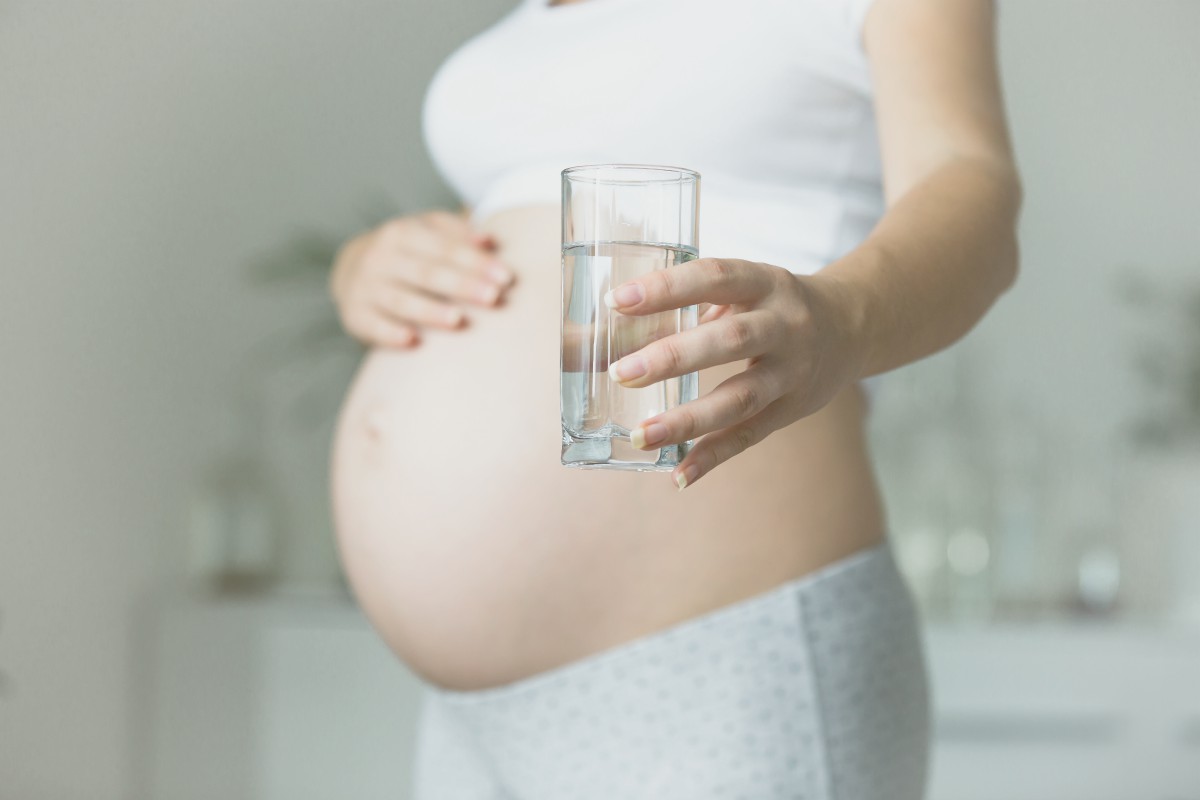Contaminated water is bad for you…and even worse for your future baby, as it can cause birth defects.
RELATED: Is Chlorine Safe For Babies?
In this article:
- What Exactly Is Contaminated Water?
- Common Birth Defects
- Tap Water Can Be Risky for Pregnant Women
- Safe Water to Drink During Pregnancy
- Tyent Water Is Safe for Pregnant Women
- Health Benefits of Alkaline Water to Pregnant Mothers
Birth Defects and Contaminated Water: How You Can Prevent It from Happening
What Exactly Is Contaminated Water?
We may imagine contaminated water as a muddy, slimy, green muck that is obviously too dirty to drink. But contaminated water can be as unassumingly clear as clean drinking water, which instills a false sense of security.
In fact, the chlorine put into water to kill bacteria creates harmful chlorination byproducts, also called CBPs. These include halogenated trihalomethanes and haloacetic acids, which are both classified as potential carcinogens.
Other contaminants undetectable to the naked eye include lead, pesticides, and nitrates. Studies even show that expecting mothers who drink nitrate-laden water could risk giving birth to children with cleft palate and spina bifida.
Contaminated water can now mean not only dirty water but also water that has also undergone a disinfecting process. Many cleaning and bleaching agents that reduce bacteria often interact with minerals and become dangerous substances.
The problem of birth defects due to contaminated water seems to affect both small and large cities. Cities like Pittsburgh, San Francisco, Philadephia, and Washington, D.C. have a history of elevated CBP levels which account for large numbers of pregnant women who are at risk.
There are even more small towns that report alarming levels of CBP in their tap water. They usually get their water supply from rivers and reservoirs treated by chlorine and are therefore twice as likely to be at risk.
Common Birth Defects
Birth defects that are more commonly occurring include cleft lip or cleft palate, heart defects, abnormal limbs, and neural tube defects like spina bifida.
What Is Spina Bifida? This is when the spine and spinal cord of a baby fail to properly develop in its mother’s womb. This causes a gap to develop and leads to other defects in the bones and cords of the spine.
Tap Water Can Be Risky for Pregnant Women

Tap water is actually risky for pregnant mothers to consume yet it’s the most accessible form of drinking water available. Everyone in the modern world has a faucet in their home, but mass filtration and disinfection processes often overlook contaminants such as CBPs.
Tap water can also be a danger not only through ingestion but also through steam inhalation. This can happen when you’re showering, bathing, taking a dip in a swimming pool, or even boiling water in a kettle.
Installing charcoal filters may work to filter out the CBPs and other dangerous byproducts. But that can often be costly and produce a strange taste and smell to your water.
RELATED: When To Give A Baby Water
Safe Water to Drink During Pregnancy
Expecting mothers need to drink a whopping 5 liters of water a day. This is to ensure their babies grow to a healthy size, and also to maintain proper levels of hydration.
Safe nutrition is essential for the baby’s proper growth and development, and this includes safe hydration as well. Tap water is a common source of drinking water, but with the threat of contamination, what could be a safer alternative?
Alkaline water is a healthy and safe alternative drinking water option for expecting mothers and their growing babies. The high levels of pH in alkaline water help fight the acid buildup in a pregnant woman’s body and support her overall health.
Tyent Water Is Safe for Pregnant Women
Tyent’s water ionizer is a great way to restore alkalinity and lost minerals. Plus, a Tyent water ionizer removes chlorine, lead and heavy metals. Chlorine, which is a common cleaning agent for tap water, clears the bacteria, but also raises the risk of dangerous byproducts that can result in birth defects.
Natural filtration usually does this for water by running through rocks and sand where the water picks up minerals. But when chlorine mixes into that water, it loses its alkalinity, as well as those healthy minerals.
Tyent ionizers clean up all of the contaminants in your tap water and leave you with a fresh glass of mineral-rich alkaline drinking water.
Health Benefits of Alkaline Water to Pregnant Mothers
There are multiple benefits to drinking alkaline water, not just for regular people but for expecting mothers as well.
Alkaline water is full of antioxidants, which are an important weapon in the fight against free radicals that damage healthy cells.
Alkaline water produced by Tyent filters also supports the immune system. This is especially helpful since pregnant mothers’ immune systems can be weaker.
Tyent alkaline water also promotes better hydration thanks to its plentiful hydrogen content. The small hydrogen molecules make it easier for the body’s cells to absorb the water.
Pregnant mothers who are vulnerable to gastric acid reflux may also find relief by drinking Tyent water. The alkaline water can help with neutralizing acid, which minimizes those uncomfortable refluxes.
Birth defects are a frightening prospect to think about when thinking of a future for developing babies. There are several factors at play, including environmental factors as well as genetics, and also drinking water.
There is a diluted market out there full of different kinds of drinking water. But not all of them are best for drinking for expectant mothers.
Invest in a Tyent ionizer to worry no more about which water is safe for you to drink during your pregnancy. It removes dangerous chemicals away from your water, including trihalomethanes, metals, and organic byproducts.
Tyent ionizers also help by alkalizing your drinking water, ensuring higher levels of pH, as well as healthy minerals like zinc, magnesium, and potassium. Make sure your baby is ready for the world by making sure to drink only safe water.
How has alkaline water given you health benefits throughout your pregnancy? Share your pregnancy health experience with us in the comments section below!
Up Next:

![At Home Water Test: How to Test Your Water at Home [2024] drinking water](https://www.tyentusa.com/blog/wp-content/uploads/2024/09/Screenshot-2024-09-09-224708-150x150.png)







